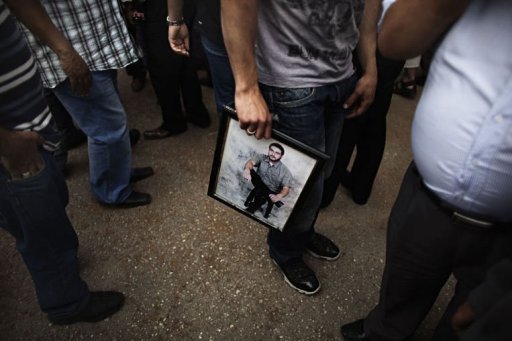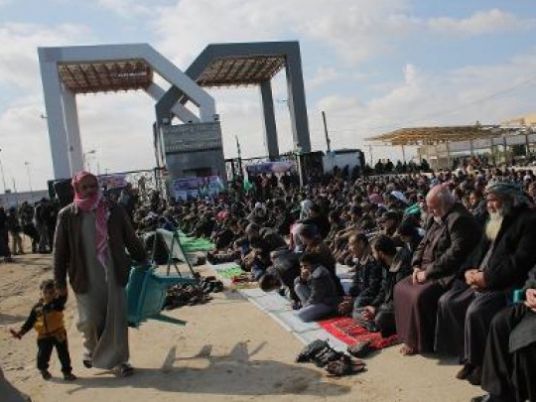
Two Palestinian prisoners on hunger strike in Israeli jails for 62 days are in danger of dying and are receiving inadequate medical care, the Physicians for Human Rights-Israel group warned on Monday.
The warning, after a doctor from the group visited the men, came as Palestinian officials said thousands more Palestinian prisoners could join an open-ended hunger strike if their demands were not met.
PHR-Israel said the lives of prisoners Bilal Diab and Thaer Halahla "are in danger and asks that they immediately be transferred to a civilian hospital."
Both men are being cared for in an Israeli prison clinic, which PHR-Israel said was incapable of providing appropriate care.
"Close medical monitoring for the hunger strikers is essential at this stage," a statement said.
"It cannot take place in the IPS (Israeli Prison Service) medical facility, which is not a hospital and cannot cope adequately with a sudden deterioration in the hunger strikers' condition."
PHR-Israel said Diab was now in "immediate mortal danger," suffering from extreme weight loss, a slow heart rate and very low blood pressure.
"He is suffering from stomach pains and there are indicators he could be suffering from internal bleeding," the statement said, adding that Halahla was in urgent need of a CAT scan.
The men are among 1,450 Palestinian prisoners in Israeli jails on hunger strike, though Diab and Halahla have been refusing food the longest.
They began their strike on 29 February, and have been joined by an increasing number of fellow inmates, including a group of 1,200 who began an open-ended protest on 17 April.
A Palestinian official who spoke to AFP said thousands more Palestinian prisoners would join the protest if their demands were not met by a 2 May deadline.
"The prisoner leaders are awaiting a response from the Israeli prison authorities by 2 May. If they don't give a positive response, all the prisoners will join the hunger strike," the official said.
The prisoners are demanding better prison conditions, including greater access to relatives and lawyers and an end to solitary confinement, and are also protesting the use of administrative detention.
The practice allows Israel to hold detainees without charge or trial for renewable periods of up to six months at a time. Both Diab and Halahla are being held under administrative detention orders.
Another Palestinian source said negotiations were under way between prison authorities and prisoner representatives including jailed Fatah leader Marwan Barghouti and veteran prisoner Karim Younis.
Israeli media said that, during a routine prison visit, IPS governor Aharon Franco met prisoners, including Barghouti, who aired their grievances, and he told them a committee dealing with them would deliver its findings in 10 days.
Weizman said there were no negotiations, but demands were being examined without reference to the 2 May deadline.
"We don't work to deadlines and do not engage in any negotiation. We are looking at their demands irrespective of the strike, through a team that began examining their demands before the strike," she said.
Palestinian prisoners minister Issa Qaraqaa said on Monday that the Palestinian Authority, the Arab world and the Europeans were putting pressure on Israel to resolve the situation as soon as possible.
"There is communication between the Palestinian Authority and Israel through the civil administration, and there is also Arab and European Union communication with Israel to try to find a way to end the hunger strike," he told AFP.
"But until now, we haven't had an answer."
There are 4,699 Palestinians being held in Israeli jails, of whom 319 are in administrative detention, according to Prisoners Club figures.




